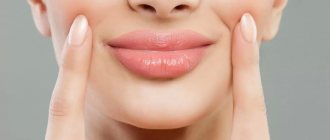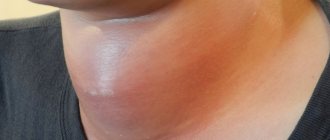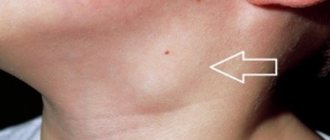The baby constantly touches his hair or sucks his finger
If a baby regularly twirls a strand of hair around his hand, bites his nails, or sucks his finger, this indicates that he is under emotional stress. An unconscious action that he repeats over and over again gives the baby a feeling of calm and stability. Children often resort to this method when they are afraid of disappointing mom and dad.
If parents make excessive demands on their child and expect only the best results, it is vital for the child to calm down. He is afraid of not living up to the expectations that adults place on him. There is no one to ask for help, because parents will scold and say: “You are already an adult. Solve problems yourself”, “We are tired of doing everything for you”, “How many times can we repeat: we are busy!” If you say this to a child, think about what it would be like for him to hear such phrases from the person closest to him.
Marina, 23 years old:
“I sucked my thumb as a child. This continued for up to 6 years. From the age of three, my parents sent me to the figure skating section, my mother additionally taught me English, my father taught me to play chess. I didn’t have a childhood as such. Later I realized that I calmed down only when the finger was in my mouth. My parents scolded me for this habit, smeared mustard on my finger, and bandaged me. It would have been better, of course, if they had taken me to a child psychologist, but at that time this was not accepted. And my authoritarian mom and dad wouldn’t agree to see a doctor. It seemed to them that they were trying for my sake, but I didn’t need it. At the age of 6, the skin on my finger burst from constant sucking, it was very painful for me, but my parents never regretted it. On the contrary, they said that it was my fault. Now I hate chess and ice skating, and I will never force my children to do anything they don’t want.”
What is the danger
This habit has a negative impact on swallowing, since the lips are often in an abnormal position. Depending on the duration of this behavior, injuries to tissues and facial nerves may occur. Prolonged thumb sucking, licking or biting of lips causes negative effects on the tissues around the mouth.
In many situations, such habits are ignored; parents think that it will go away on its own, thereby aggravating their course. The lips crack, swell, peel, irritation and problems with the mucous membrane appear around them. Over time, malocclusion also appears. It is important to notice the problem in time, find out its cause, and get rid of it.
Sniffles, grunts, coughs
From early childhood, children understand that during illness, parents forget about their important, adult affairs and devote all their time to the sick child. As children get older, they may deliberately blow their nose loudly, cough, or sigh while pressing their hand to their forehead. At the same time, the little pretenders feel good, they just want to attract the attention of their parents. Children want to be pitied, shown care, hugged and given warm milk. This happens, as a rule, in families where parents are busy with their own affairs and do not want to spend time with their children.
Sometimes boys and girls “get sick” so as not to go to kindergarten/school. There are a number of reasons why they behave this way.
- The child feels uncomfortable in a group or class. Perhaps he has problems with one of his students or classmates, as well as a conflict with the teacher. If there is no trusting relationship with the parents, the child cannot honestly admit why he does not want to go to an educational institution. It’s easier for him to feign illness and stay home.
- Parents make excessive demands. Even though children are full of energy and strength, they can also get tired. They also need rest. If mom and dad don’t understand this, they have to resort to tricks.
- The child lacks parental attention. Kids need their parents to spend time with them: reading, playing, sculpting, drawing. Sometimes children want to be at home with mom or dad, instead of going to kindergarten/school.
A sick child receives the necessary dose of love and warmth. If you suspect that your son or daughter is pretending to be sick, look into the situation instead of immediately scolding the child.
Ksenia, mother of 6-year-old Dasha:
“My daughter rarely gets sick; her ailments can be counted on one hand. But in the last year, I began to notice that Dasha began to cough, sneeze and sniffle in the evenings. At first I rushed with a thermometer, they even called the pediatrician several times, although there were no obvious causes of the cold. The doctor said that the girl was fine. We underwent a full examination at the medical center, but all tests and indicators were normal. I did not connect Dasha’s condition with the fact that we moved and my daughter went to a new kindergarten.
It turned out that no one played with her in the group, she didn’t find any new friends, so she didn’t want to go there. But she was afraid to admit it, because my husband and I work, and she didn’t want to upset us. I blame myself for not talking to Dasha frankly, for not finding out the reasons why my daughter was making up illnesses. We work a lot, but no work is worth forgetting about the problems of children. Now Dasha goes to a private kindergarten. She immediately made friends in the group, and now every morning her daughter runs to kindergarten with joy.”
What to do?
What to do if the child is already quite large and sucks his lower lip. There are several reasons for this behavior. First of all, the parent must figure out what’s going on. This requires:
- Talk to him, find out the reason why he does this.
- Find out why he begins to behave strangely, perhaps he does this every time after his parent punishes him.
- Examine his oral cavity independently for the presence of stomatitis or the eruption of new teeth. If, as a result of the examination, white plaque was discovered, then it is worth treating the affected area with a special dental gel.
- Show the child to a specialist: psychologist or neurologist.
The way to solve a problem directly depends on the cause of its occurrence. But under no circumstances should you:
- scold the child every time he performs this action;
- try to shame him.
In this case, the child may withdraw into himself even more or begin to do this on purpose to annoy the parent. But you shouldn’t let such a habit take its course either; it can lead to even more global problems.
Child bites lips
If you are talking to a baby, and he constantly bites his lips, perhaps the baby is afraid to say something unnecessary or forbidden. Perhaps the child is holding back with all his might so as not to give away some secret. Or he does not want to enter into an argument with his opponent, even if he does not agree with his point of view.
Important! If a baby bites his lip while doing something (for example, painting a picture or making a craft from plasticine), most likely he is simply focused and completely involved in the process.
Children bite their lips, as a rule, when parents constantly pull back, do not allow them to speak out, and do not take into account the opinions of younger family members. What should adults pay attention to?
- Try to control what you say to your son (daughter) even in those moments when you are very angry or angry.
- Constantly tell your child that you love him and that you are proud of his achievements. Try to avoid criticism and remarks that destroy warm relationships.
- Give children more freedom. Let them exercise independence, use imagination and creativity. If you do everything for your child, he will not gain invaluable life experience. And endless advice from parents only hinders the development of creative thinking.
Alena, 27 years old:
“My parents raised me in strictness. I was not allowed to express my thoughts, desires, my life was clearly planned by my mother and father. “Don’t argue with your elders”, “You must study well”, “No one asked you” - this is how they talked to me since childhood. Then I developed the habit of biting my lips. They crusted over, burst, and an itchy rash formed around them. The dermatologist prescribed some ointments and tinctures, but everything happened again. When I left my parents and turned to a psychologist, we found the reason for my habit, which, by the way, still remains. I almost don’t communicate with my parents, we don’t have a good relationship, but it’s not my fault.”
The child makes faces and clowns around
When a baby makes faces and grimaces, he is thereby trying to attract the attention of others. Usually children behave this way because they feel insecure. It seems to them that they are worse than other girls and boys, so they clown around and attract the attention of adults and children in every possible way. If parents make a remark, the children are only happy, because the goal has been achieved and they have been noticed. As a rule, such behavior signals that parents regularly criticize the child: “How clumsy you are,” “You never manage to do anything properly,” “Are you completely stupid? How many times do I explain the same thing to you?”
On a note! A child may make faces and act out when he has a younger brother or sister. This is how he attracts the attention of the mother, who is busy with the newborn for days.
Elena, mother of 6-year-old Ruslan and 3-month-old Eva:
“Ruslan has always been a calm, polite boy. But even when I was pregnant with Eva, he began to behave very strangely. He could start making faces on the street, sticking his tongue out at passers-by, running and screaming wildly in the store. And after Eva was born, Ruslan’s behavior became even worse. It’s good that experienced mothers of two and three children on the forum suggested that my eldest son needed my attention. I thought that he was already an adult and able to take care of himself. But it turns out I was wrong.”
The baby screams, makes trouble, offends others
If the baby regularly makes scandals, this may indicate that the baby is hiding some serious problem. A little person in constant stress must throw out negative emotions, and he does this in the best way he knows how: he throws toys, hits and bites his mother, takes away the car from the neighbor boy. This behavior is often typical for children raised by one parent or grandparents.
The most amazing thing is that aggressive children can hear encouraging words from adults: “You are my best child,” “I adore you,” “You are my only hope in life.” The baby feels a serious burden of responsibility, because his parents consider him ideal, so he needs to live up to it. The nervous tension that grows inside every day does not give the child peace, and he has to use aggression to free himself from negative emotions.
If your baby bites while breastfeeding
Authors : La Leche League International
Baby teeth can seem like a serious problem to expectant mothers and their friends. When a pregnant woman talks about her plans to breastfeed, no, no, and there will be someone who asks with a smile: “What will you do when you start teething?”
Some people believe that once the baby's teeth appear, it's time to wean him off the breast. They may feel that baby teeth make breastfeeding painful for the mother. However, if the child sucks correctly, the mother will not be in pain with two, four, or a mouthful of teeth erupted by the child. As with many aspects of motherhood, the anticipation of teeth is often scarier than the teeth themselves. It is important to remember that a baby who sucks intensely at the breast cannot bite. When applied correctly, the nipple is located far in the baby's mouth. The baby's lips and jaws are on the areola (the dark skin around the nipple) about an inch from the base of the nipple. The baby's tongue sticks out forward and rests on the lower jaw, between the lower teeth and the chest. The upper teeth may leave a painless impression on the areola, but while the baby is actively sucking and swallowing, he will not be able to bite down on the breast. It hurts when a child's jaws close on the nipple and not on the areola, regardless of the presence of teeth in the mouth. Simply put, if a baby is sucking correctly, he cannot bite, and if he bites, he is not sucking correctly. If the baby does bite, it usually happens during latching, during a feeding pause, or at the end of a feeding, when he is no longer actively sucking.
If Your Baby Bites A mother's natural response to pain may discourage her baby from biting. Many children flinch at their mother's loud exclamation and immediately release the nipple. Some may even cry. Such negative experiences are enough for many children to stop trying. In “Mothering Your Nursing Toddler,” Norma Jane Bumgarner notes, “Perhaps the vast majority of babies wean themselves from biting so quickly because we consistently, immediately, and firmly respond to biting at the breast. This is probably the only time we demand behavior change so quickly, decisively and consistently. In addition, babies love us and respond to our sincere and emotional offer not to bite anymore. Sometimes such a strong reaction has a side effect with sensitive babies, who may respond by refusing to breastfeed altogether. This sudden loss of interest in feeding or complete abandonment of the breast is called a strike. A feeding strike differs from the end of a feeding in that it begins suddenly and the baby appears dissatisfied. A child who is “on strike” may have to be persuaded and convinced for a long time that it is possible and necessary to return to breastfeeding. Therefore, you should not deliberately exaggerate your reaction to a bite, be natural. If the child has closed his jaws on the nipple, do not try to tear it off the breast. This will damage the skin more than the bite itself. Instead, slide your finger between your baby's jaws to relieve the pressure. Without removing your finger, remove the breast from your mouth. Another way is to hold the baby as tightly as possible to the chest. This will force the baby to release the nipple, as babies are very sensitive to anything that interferes with breathing through the nose. Some mothers prefer to gently pinch their baby's nose so that he opens his mouth and releases the nipple.
Stop feeding so baby is not tempted to see if mom will jump again if she bites again. As soon as the first bite or “almost bite” occurs, offer the child a safe object to bite on - a toy or a special teether, so that he knows what he can test his teeth on without consequences. Explain to him: “You can bite this as much as you want. But you have to suck carefully.” Some mothers take more stringent measures in response to a bite - immediately sit the child on the floor. After a few seconds, an upset child can be calmed down. He will understand that biting leads to unpleasant consequences. Next time you offer the breast, be especially careful with your baby's attachment and encourage proper latching and gentle release of the nipple. Telling your child “thank you”, “good girl”, smiling, hugging and kissing him, you can achieve great success in gradually teaching the child proper feeding. One mother even turned it into a game with her five-month-old son: “Our feedings were done lying down. He gently let go of the nipple and I praised him. He smiled, sucked on it again, after five seconds he gently let go again, I praised him again. He smiled again and sucked again. It continued until I decided not to tempt fate anymore, to get up and do something else.” Even very young children can be taught the correct attachment and feeding position, with the affectionate support of their mother.
Other Causes of Biting Some babies are more persistent in their attempts to bite the breast. If you find the reason for this behavior, it will help you decide on the best way to solve the problem. Common reasons that affect biting are teething, the use of rubber nipples, insufficient milk supply, lack of attention to the child, and a stuffy nose in the child. Whatever the reason for a baby biting, it most likely happens towards the end of a feeding, when hunger has mostly been satisfied and attention has moved on to other things.
When teeth are being cut, your gums may hurt. At this time, the gums are red and swollen in appearance. If you rub your gums with your finger, you can often feel under the skin a tooth that is about to appear. Sometimes teeth erupt very early, and some children are already born with one or two teeth that have erupted. With a stuffy nose, bites are also possible. Lack of free air flow interferes with proper sucking and the baby may slip from the correct latch. This brings the nipple closer to the jaws, and if the jaws are still squeezing the breast, the baby may accidentally bite the nipple. A baby with a stuffy nose may also shake their head from side to side while feeding because they are frustrated by their inability to breathe properly. In this case, the jaws can also slip onto the nipple. If the child has a cold or has a stuffy nose, and this interferes with feeding, you may need to consult a doctor about treatment. Suctioning mucus from the nose with an aspirator can provide relief for a child who cannot blow his nose and spends most of his time lying on his back, although many children do not like this procedure. Feeding in a more upright position can help a baby with a stuffy nose breathe easier because the Earth's gravitational pull helps clear mucus from the airways. Sometimes a baby who bites the nipple during feeding is seeking maternal attention. Often mothers read, talk on the phone, or watch TV while breastfeeding. All this is good, but in moderation. Older children can sometimes use any means to try to divert their mother's attention to themselves, sometimes even biting the breast. Some people have a playful twinkle in their eyes just before the bite. This kind of biting usually occurs towards the end of feeding or when the baby did not particularly want to suckle at all.
Using rubber pacifiers and pacifiers can also provoke bites. The movements of the mouth and tongue when sucking at the breast are very different from the movements when sucking on an artificial substitute. The baby may confuse the nipples and try to chew at the breast rather than suckle properly. Although these sucking problems associated with artificial breast substitutes occur mostly in the first weeks, they sometimes occur in older children. Sometimes breast chewing begins after the baby learns to drink from a sippy cup, especially if he likes to chew on the spout of the sippy cup. Artificial nipples may also indirectly affect biting when the baby regularly bottles juice or water, which can reduce milk supply. A child may bite out of desperation that there is not enough milk. Other supplements also help reduce milk supply. In this case, breast stimulation with more frequent feedings will help. If your baby starts biting around the middle of the first year and a few days of frequent feedings don't help increase your milk supply, it may be time to introduce solids.
The amount of milk may also decrease due to a new pregnancy. Jamie Larson (Florida, USA) wrote about her experience in NEW BEGINNINGS. Her daughter started biting at eight months. Despite a thorough search for possible causes, she could not understand why Yuriel began to bite. Three months later, Jamie suffered a miscarriage, after which Yuriel suddenly stopped biting and Jamie's milk supply increased noticeably. She did not notice the pregnancy and did not pay attention to the significant decrease in the amount of milk. Another visit to the doctor showed that Yuriel had not gained any weight over these months. Jamie writes that after the miscarriage, Yuriel gained almost two kilograms in three weeks.
Sometimes mothers note that with the restoration of the cycle, milk may become slightly less during menstruation. During this time, the breasts may become more sensitive, sometimes making feeding uncomfortable for the mother. Hormonal contraceptives can also affect your milk supply, especially if they are started in the first weeks after birth. Other factors may include certain medications and dietary supplements. If you have any doubts about the effects of a particular medication or supplement on your milk, consult with experts in the field. It's also worth considering your child's personality: some children are simply more inclined to perceive the world in an oral way. When they start crawling, everything that comes into their hands goes into their mouth. They like to taste everything new and explore the shapes and composition of objects with their tongue.
Feeding position Around the age of three to four months, the baby begins to become much more interested in the world around him. Any sound, even an older child playing nearby, can intrigue him so much that he quickly turns his head to see what is there. Unfortunately, at the same time, he may forget to let go of the breast and slides onto the nipple. A baby of any age who has fallen asleep at the breast may react to the removal of the nipple from his mouth by clenching his jaw. Such actions are more likely to be reflexive and may require different actions than other types of breast biting. Older children may take positions during feeding that are uncomfortable for the mother. Sometimes the baby can lean so hard on the breast that the nipple is under pressure, although not in the baby's teeth. Particularly active babies twirl so much during feeding that they end up in completely twisted positions. When a baby's mouth rotates repeatedly around the breast, the nipple can experience the same uncomfortable, even painful pressure. Such children have to, with the help of firm guidance, somewhat limit their gymnastic impulses during feeding and find a way of feeding that is acceptable for both mother and child.
Preventing Biting With close attention and observation, you can prevent one biting incident from going from one to a recurring problem. You can even prevent the very first bite. Each situation is unique, and you may need to try several different strategies before you figure out what's best for you and your baby. Here are some ideas that other mothers have found helpful.
- Be prepared to protect the nipple when removing it from your baby's mouth, especially if he has fallen asleep. Insert your finger into the corner of the baby's mouth, deep enough between the jaws to feel your nipple, and only then remove the baby. If he closes his jaw in a reflexive attempt to continue sucking, he will bite the finger, not the breast. If you support your breast with your hand while feeding, it can be convenient to use the index finger of that hand. Some people prefer the pinky finger. Regardless of the finger, the nail should always be trimmed short to avoid scratching the baby's mouth or nipple.
- If you feel like your baby is latching onto the nipple to get attention, start giving him unlimited attention from the start of feeding. Touching, talking, and making eye contact will reassure your child that he is the center of your attention. A certain vigilance will allow you to understand in time when the baby loses interest in feeding.
- By observing how your baby sucks, you can learn to determine when it is time to stop feeding.
- While watching the baby while feeding, the mother may notice that shortly before the bite his jaw gradually tenses. This may be a signal to stop feeding before he has a chance to bite.
- The child may also move the tongue out of its normal position above the lower jaw.
- Pay special attention to proper positioning and latching so that the baby is focused on sucking, this reduces his chances of biting. Make sure your baby's mouth is wide open before you bring him to your breast and point the nipple toward the back of your baby's mouth. For women with large breasts, it is especially important to support the breast with your free hand during latching, and possibly throughout the feeding. Always keep the baby's body turned towards you so that he does not need to turn his head to the chest.
- Don't insist on feeding, especially with an older child. Many mothers use feeding to encourage daytime sleep, but some babies do not want to sleep during the day and resist not only sleep, but also feeding. If your baby is fidgeting, twisting and pushing you away with his arms, he may not be hungry and doesn't want the breast. If you feel that your baby is too excited and has difficulty calming down, try lying down with him in a quiet room, this may remind him that it is time to eat. Little restless children can be calmed by walking or rocking.
If your nipple hurts There are many nerve endings on your nipples and they are very sensitive. The bites cause pain at the moment of biting, and sometimes even for some time after. However, nipples hurt mainly when trying to tear a baby who is still sucking off the breast. If your nipples are sore, proper latching technique (making sure the nipple is not in contact with your baby's lips and jaws) will protect against further damage and help things heal quickly. If only one nipple hurts, start feeding on the other breast so that the most intense sucking is not on the sore nipple.
Putting it in perspective The possibility of being bitten by your own child may sound a little scary, but motherhood in general can sometimes be dangerous. An active baby may step on your foot or hit you on the head while trying to hug you, but you won’t stop hugging him because of this. You just take care to protect your feet and head. The same applies to nipples. The first step to self-protection is to pay attention to the signals your baby gives. Every mother will find a way that works for her and her child. Patience, persistence, careful observation and sensitivity to a child's feelings are important parenting tools at any age. If your baby goes through a biting phase, rest assured that it won't last long and you can continue feeding as long as necessary.
Source
published 01/31/2014 18:19 updated 12/05/2021 — Natural feeding











